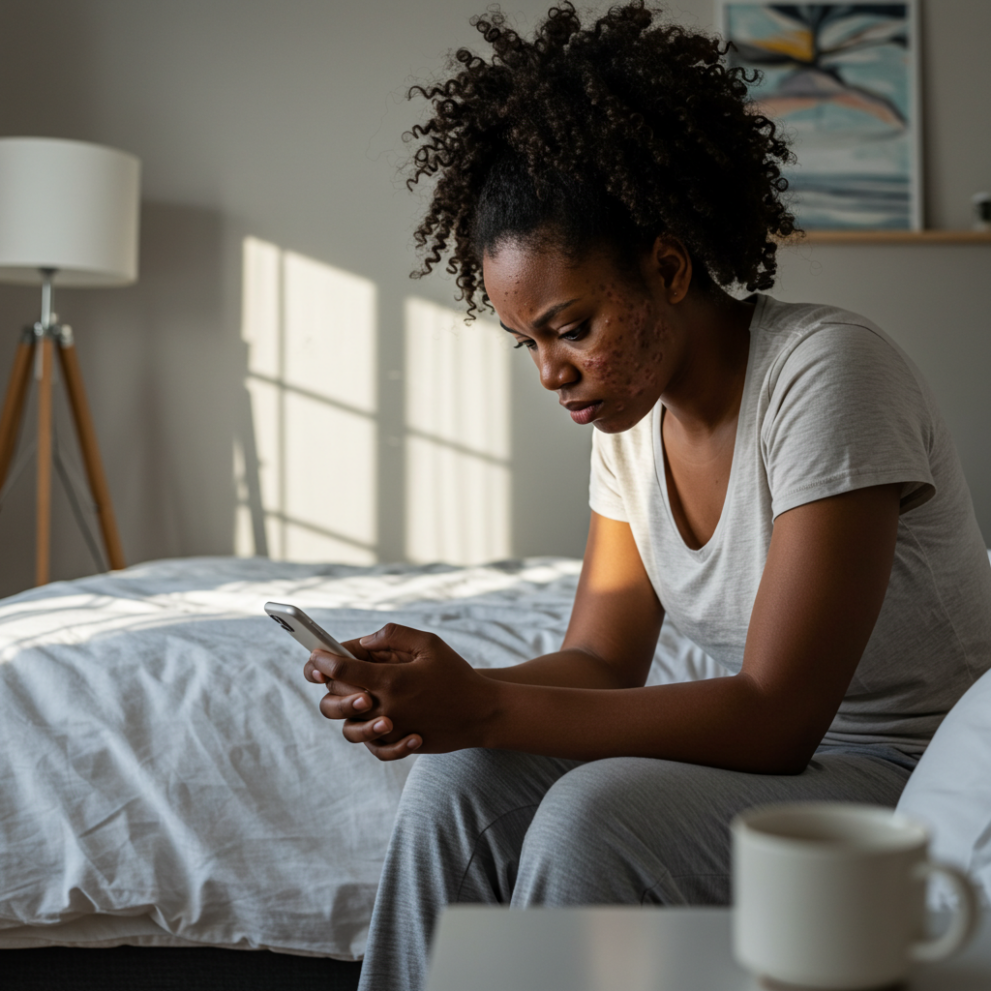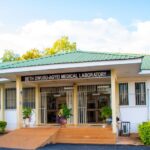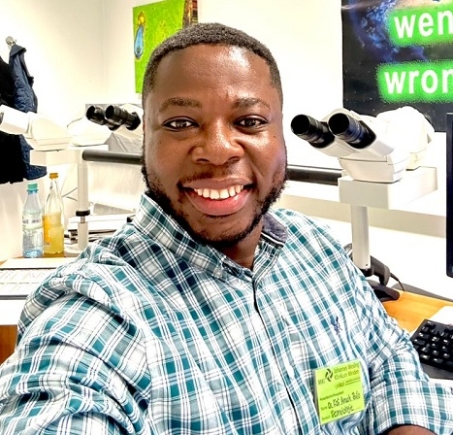
In late August 2025, a single Snapchat post ignited an outpouring of solidarity and transformed the way Ghanaians confront one of youth’s most ubiquitous yet overlooked health challenges. Yasmine, a university student navigating the fraught terrain of adolescence, shared a raw confession about the toll severe acne had taken on her mental well-being. “People with clear skin don’t know what God has done for them,” she
wrote, laying bare the years of stigma, financial strain on treatments, and encroaching despair that had eroded her self-esteem. Within hours, her message reverberated across social media, as countless young people joined her to pour out their own hidden struggles.
The sheer impact of Yasmine’s cry for help went far beyond the appearance of blemishes. For many, acne is dismissed as a cosmetic nuisance, often having its effects euphemized and trivialized yet her words revealed deeper wounds—the silent burden of rejection, the guilt of unmet expectations, and the harrowing thought that suicide might offer relief. “This thing has taken my happiness from me. Sometimes I feel like committing suicide,” she confessed. She posed acne as a catalyst depression and suicide idealization. Her cry shattered through social media, prompting a digital chorus of testimonies from peers who had long suffered in shame and isolation.
Among those moved by Yasmine’s vulnerability was Dr. Kofi Ansah Brifo, a dermatologist renowned for integrating clinical dermatology with mental-health advocacy. With over seven years of practice in both in-patient and outpatient settings, Dr. Brifo has dedicated his career to illustrating how cutaneous disorders intersect with psychological suffering. After encountering Yasmine’s post, he reached out immediately to offer both medical expertise and compassionate counsel. “Acne is not just about the skin—it is about self-esteem, confidence, and mental wellbeing,” he explained, indicating that the scarring and redness visible on the surface often conceal profound emotional distress.
Driven by his belief that every patient deserves holistic care, Dr. Brifo invited Yasmine to join The Summer Skin Project (SSP 2025), an initiative he co-founded to ensure young Ghanaians could access dermatological consultations and subsidised treatments without enduring crippling costs. The programme combines standard therapies—such as topical retinoids and oral antibiotics—with lifestyle counselling, nutritional guidance, and stress-reduction techniques. Recognizing that the path to recovery extends beyond pharmaceuticals, Dr. Brifo also arranged for Yasmine to consult a clinical psychologist. This dual approach was an attmpt to seek healing not only in the visible lesions but also the hidden scars of anxiety and depression.
Yasmine’s journey through SSP 2025 is being documented on her Snapchat channel, not as a fleeting trend but as a living testimony to resilience. Each update chronicles her transformation: the first tentative steps back into social gatherings, the relief of clearer skin reflected in her mirror, and the gradual rebuilding of self-worth once overshadowed by cysts and breakouts. By sharing her progress in real time, she invites others to witness that recovery is attainable—and that hope can flourish even after years of doubt.
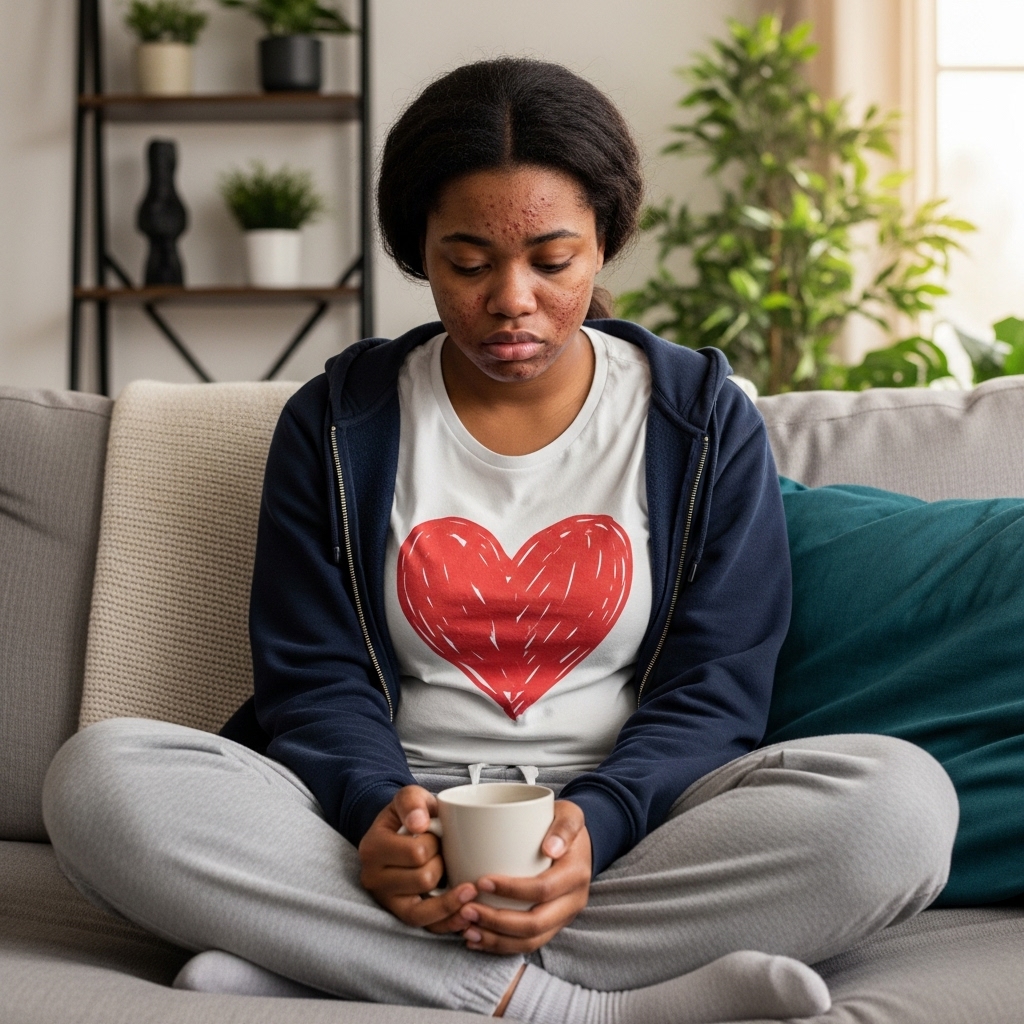
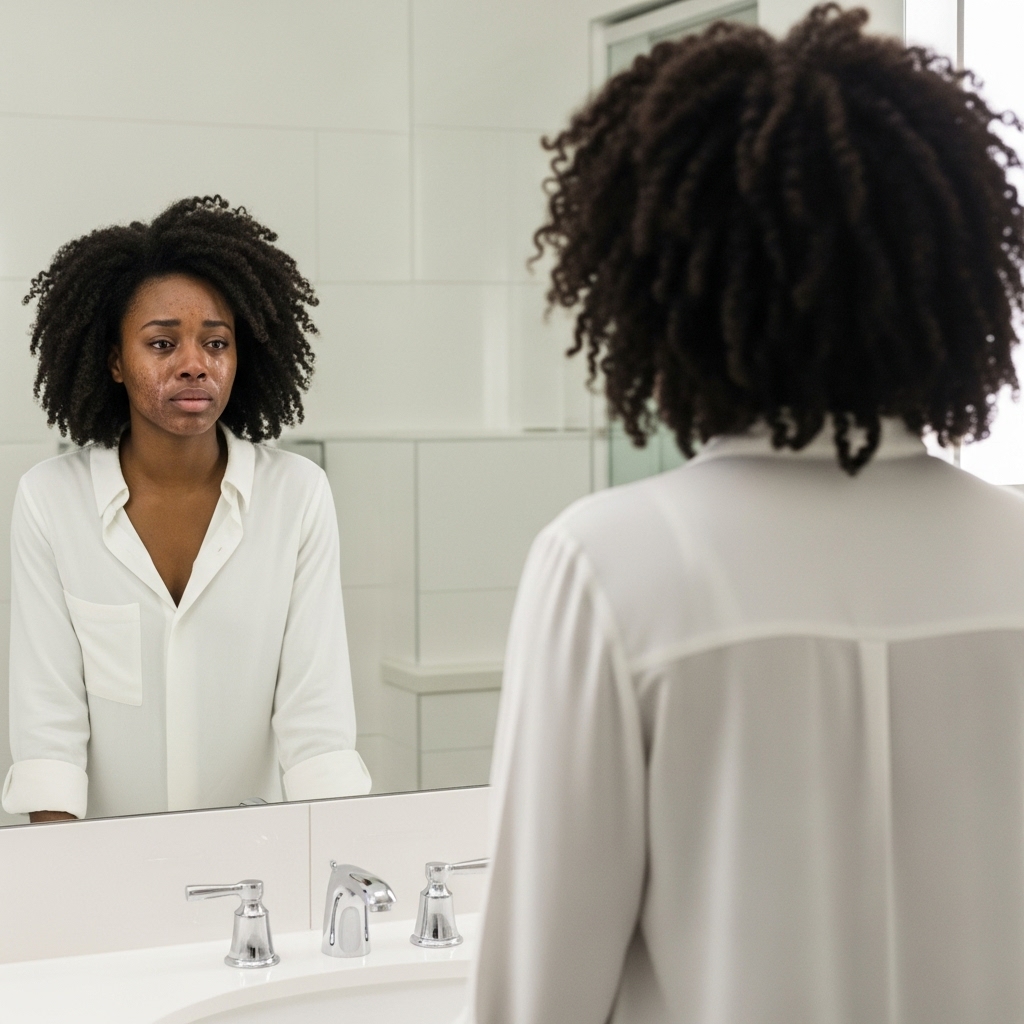
The impact of one young woman’s story has extended far beyond individual healing. SSP 2025 has seen a threefold increase in enrolment requests from teenagers and young adults seeking both treatment and emotional support. Community clinics report that patients previously reluctant to discuss acne now arrive empowered with questions about mental health resources and lifestyle modifications. Parents, too, are engaging in conversations that had once been hushed, acknowledging how stress at school or home can aggravate dermatological conditions.
Dr. Brifo believes Yasmine’s courage serves as a beacon for Ghana’s youth, breaking down barriers between cosmetic health and psychological well-being. “This is an invitation,” he proclaimed, urging all those who have suffered in silence to come forward. “If you are struggling with acne, you are not alone. Come forward. Join us in the Summer Skin Project. Together, we can fight both the scars on the skin and the scars on the soul”. His words underscore a fundamental shift in the nation’s approach: acne is no longer an afterthought but a legitimate public-health concern demanding integrated solutions.
The broader implications of this movement resonate with growing global recognition that skin diseases rank among the leading causes of years lived with disability, particularly among young people. Yet in many parts of Africa, access to dermatological care remains sparse, and mental-health services are often stigmatized or underfunded. SSP 2025 advances a model that local governments and international partners can emulate—one that embeds dermatology clinics within youth centres, trains school counsellors to spot early signs of psychological distress linked to appearance anxieties, and builds digital platforms for peer support.
Early indicators suggest that combining subsidised treatments with psychosocial therapy significantly accelerates recovery and enhances patient satisfaction. Within three months, over 70 percent of SSP 2025 participants report marked improvements in both lesion severity and quality of life, measured by standard dermatology-specific quality-of-life indices. More importantly, participants emphasize restored confidence, reduced social withdrawal, and decreased thoughts of self-harm as life-changing outcomes.
As Yasmine’s story continues to unfold on social media, it charts a powerful narrative arc—from hidden anguish to communal empowerment. Her experience proves that a single vulnerable post can mobilize experts, catalyze new programmes, and reshape public attitudes. By illuminating the nexus of skin health and mental health, this movement positions acne not as a cosmetic triviality but as an urgent field for advocacy, research, and policy reform.
In the wake of this momentum, stakeholders across Ghana’s health ecosystem are exploring sustainable pathways to scale SSP 2025. Proposals under consideration include integrating acne screening and counselling into national adolescent-health policies, expanding teledermatology services to rural districts, and securing funding for ongoing training of clinical psychologists specialized in dermatological concerns. The aim is to ensure that no young Ghanaian ever feels compelled to suffer in silence or to contemplate self-harm because of a treatable condition.
Yasmine’s initial plea for help has grown into a clarion call for systemic change—one that affirms the right of every young person to clear skin and a clear mind. Through her bravery and Dr. Brifo’s visionary leadership, Ghana is charting a course toward healthier bodies and hearts alike. If this evolving story teaches us anything, it is that hope can emerge from the deepest valleys of despair—and that sometimes, the road to national transformation begins with the honesty of a single voice.
Source: From despair to hope: How young woman’s Acne struggle is inspiring a movement

